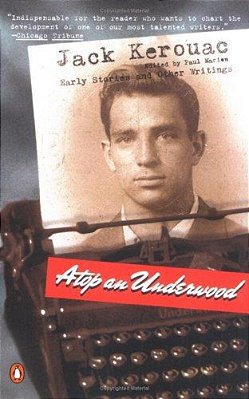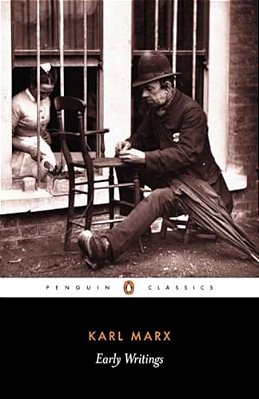Early Stories-..
-
- 1x de R$ 224,08 sem juros
- 2x de R$ 112,04 sem juros
- 3x de R$ 74,69 sem juros
- 4x de R$ 56,02 sem juros
-
R$ 212,88

-
R$ 224,08

Gathering together almost all the short fiction that John Updike published between 1953 and 1975, this collection opens with Updike's autobiographical stories about a young boy growing up during the Depression in a small Pennsylvania town. There follows tales of life away from home, student days, early marriage and young families, and finally Updike's experimental stories on 'The Single Life'. Here, then, is a rich and satisfying feast of Updike - his wit, his easy mastery of language, his genius for recalling the subtleties of ordinary life and the excitements, and perils, of the pursuit of happiness. ‘Probably the best writer of short fiction in English. A brilliant book about the relationship between men and women’ Evening Standard ‘Beginning in childhood, moving on to marriage, and culminating in the bitter aftermath of the swinging sixties, The Early Stories read like the emotional diary of Updike’s generation. Finishing this volume the reader has the impression that Updike is akin to Coleridge and Shelley, with an American twist’ Independent ‘No one can make magic out of the mundane with the ease of Updike’ Observer ‘Each tale is a tiny window on suburban America and Updike balances verbal artistry with casual asides on human inadequacy and the foibles of the erotic life. These stories tease out profound truths without hysteria or hyperbole. Timeless’ Big Issue ‘Who, among living writers in English, even comes close to Updike’s sensory acuteness, his ability to pick out, from the hustle of impressions that crowd us, fragments charged with beauty and significance? Encountering these stories en masse, the first thing you feel is astonishment at the sheer abundance of Updike’s talent’ Daily Telegraph ‘Very close to being the best things Updike has written, surely placing them among the finest twentieth-century writing by anyone’ Spectator ‘Updike is a virtuoso, and The Early Stories is an enormous showroom of Updike sentences, with their lovely curves and shiny details’ New Yorker You’ll Never Know, Dear, How Much I Love You Carnival! In the vacant lot behind the old ice plant! Trucks have been unloading all afternoon; the WhirloGig Has been unfolded like a giant umbrella, they assembled the baby Ferris wheel with an Erector Set. Twice the trucks got stuck in the mud. Straw has been strewn everywhere. They put up a stage and strung lights. Now, now, gather your pennies; supper is over and an hour of light is left in the long summer day. See, Sammy Hunnenhauser is running; Gloria Gring and her gang have been there all afternoon, they never go home, oh hurry, let me go; how awful it is to have parents that are poor, and slow, and sad! Fifty cents. The most Ben could beg. A nickel for every year of his life. It feels like plenty. Over the roof of crazy Mrs. Moffert's house, the Ferris wheel tints the air with pink, and the rim of this pink mixes in his excitement with the great notched rim of the coin sweating in his hand. This house, then this house, and past the ice plant, and he will be there. Already the rest of the world is there, he is the last, hurrying, hurrying, the balloon is about to take off, the Ferris wheel is lifting; only he will be left behind, on empty darkening streets. Then there, what to buy? There are not so many people here. Grown-ups carrying babies mosey glassily on the straw walks. All the booth people, not really gypsies, stare at him, and beckon weakly. It hurts him to ignore the man with the three old softballs, and the old cripple at the merry-go-round, and the fat lady with her plaster Marys, and the skeleton suspended behind a fountain of popcorn. He feels his walking past them as pain. He wishes there were more people here; he feels a fool. All of this machinery assembled to extract from him his pathetic fifty cents. He watches at a distance a thickset man in earnestly rolled-up shirtsleeves twirl a great tinselled wheel with a rubber tongue that patters slower and slower on a circle of nails until it stops between two, and the number there wins. Only a sailor and two boys in yellow silk high-school athletic jackets play. None win. The thick tattooed arm below the rolled-up shirtsleeve carefully sweeps their nickels from a long board divided and numbered as if for hopscotch. The high-school boys, with sideburns and spotty whiskers on their bright-pink jaws, put down nickels again leadenly, and this time the man spinning the wheel shouts when it stops, seems more joyful than they, and reaches into his deep apron pocket and pours before them, without counting, a perfect little slipping stack of nickels. Their gums showing as if at a dirty joke, the two boys turn—the shimmer on their backs darts and shifts in cool z's—and walk away, while the man is shouting, "Hey, uh winneh. Hey, uh winneh, evvybody wins." His board is bare, and as his mouth continues to form the loud words his eyes lock Ben into a stare of heartbreaking brown blankness that seems to elucidate with paralyzing clarity Ben's state: his dungarees, his fifty cents, his ten years, his position in space, and above the particulars the immense tinted pity, the waste, of being at one little place instead of everywhere, at any time. Then the man looks away, and twirls the wheel for his own amusement. The fifty-cent piece feels huge to Ben's fingers, a wide oppressive rigidity that must be broken, shattered into twinkling fragments, to merge in the tinsel and splinters of strewn straw. He buys, at the first stand he strikes, a cone of cotton candy, and receives, with the furry pink pasty uncoiling thing, a quarter, a dime, and a nickel: three coins, tripling his wealth. Now people multiply, crowd in from the houses of the town, which stand beyond the lot on all sides in black forbidding silhouettes like the teeth of a saw. The lights go on; the faces of the houses flee. There is nothing in the lot but light, and at its core, on the stage, three girls wearing white cowboy hats and white spangled skirts and white boots appear, and a man also in white and bearing a white guitar strung with gold. The legs around Ben crush him toward the stage; the smell of mud mingles with the bright sight there. One of the girls coughs into the microphone and twists its neck, so a sharp whine pierces from the loudspeakers and cuts a great crescent through the crowd, leaving silence as harvest. The girls sing, toe-tapping gingerly: "The other night, dear, as I lay sleeping, I dreamt I held you in my arms." The spangles on their swishing skirts spring prickles like tears in Ben's eyes. The three voices sob, catch, twang, distend his heart like a rubber band at the highest pitch of their plaint. "—I was mistaken, and I hung my head, a-and cried." And then the unbearable rising sugar of the chorus that makes his scalp so tight he fears his head will burst from sweet fullness. The girls go on to sing other songs, less good, and then they give way to a thin old man in suspenders and huge pants he keeps snapping and looking down and whooping into. He tells horrible jokes that make the nice fat ladies standing around Ben—nice fat factory and dust-mop women that made him feel protected—shake with laughter. He fears their quaking, feels threatened from beneath, as if there is a treacherous stratum under this mud and straw. He wanders away, to let the words of "You Are My Sunshine" revolve in his head. "Please don't take my sunshine away." Only the money in his pocket weighs him; get rid of it, and he will sail away like a dandelion seed. He goes to the booth where the wheel is turning, and puts his nickel on the board in a square marked 7, and loses it. He puts the dime there, and it too is taken away. Squeezed, almost hidden, between the crusty trousered haunches of two adults, he puts down his quarter, as they do, on the inner edge, to be changed. The tattooed man comes along, picking up the quarters and pouring, with his won
| ISBN | 9780141016085 |
| Autor(a) | Updike, John |
| Editora | Penguin Books - UK |
| Idioma | Inglês Britânico |
| Faixa etária | Jovens Adultos (15-21) à Adultos (+21) |
| Ano de edição | 2003 |
| Páginas | 864 |
| Acabamento | Brochura |
| Dimensões | 0023,50 X 0015,20 |
Produtos relacionados
-
 Atop An Underwood: Early Stories And Other Writings-..R$ 182,60até 3x de R$ 60,86 sem jurosou R$ 173,47 via Pix
Atop An Underwood: Early Stories And Other Writings-..R$ 182,60até 3x de R$ 60,86 sem jurosou R$ 173,47 via Pix
-
Categorias
Conteúdo
Sobre a loja
Myre Livraria, sua livraria online especializada em importação e revenda de livros nacionais e internacionais. Oferecemos uma vasta seleção de materiais didáticos de alta qualidade para aprender inglês, espanhol, francês, alemão e muito mais. Aproveite preços competitivos e entrega rápida em todo o Brasil












